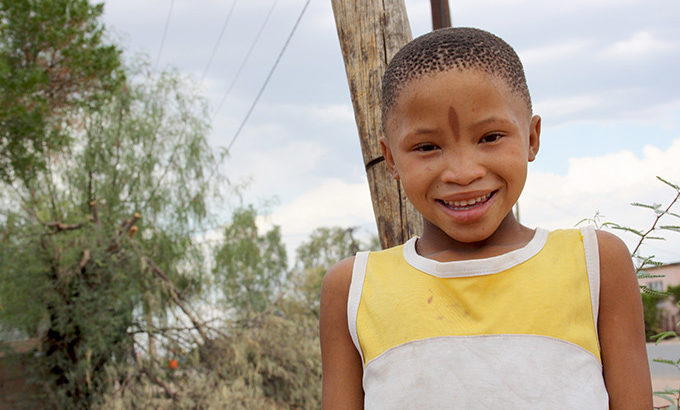Botswana/Febrero de 2017/Fuente: UNFPA
RESUMEN: los estudiantes que permanecen en la escuela, la educación sexual integral no se ofrece en el aula.Como resultado, los jóvenes no están bien equipados para protegerse contra las enfermedades y los embarazos no deseados. Menos de la mitad de los jóvenes tienen un conocimiento amplio sobre el VIH, y menos de la mitad de las niñas adolescentes conocen al menos tres métodos anticonceptivos, según una encuesta publicada en 2013. Y los jóvenes que buscan atención de salud sexual y reproductiva a menudo encuentran juicio u otras barreras. Sólo 16 de las 335 instalaciones de salud pública proporcionan servicios de salud para los jóvenes en Botswana – e incluso éstos típicamente no cumplen con los estándares mundiales. El acceso deficiente a una educación, a una asistencia sanitaria ya las oportunidades de calidad podría reducir las perspectivas de toda una generación de jóvenes. Por otro lado, las inversiones adecuadas podrían asegurar una nueva era de éxito y prosperidad.
Two years ago, 12-year-old Xhute could not afford shoes to wear to class. She was forced to drop out of school – like her mother before her.
Xhute’s mother also started having children when she was very young. She gave birth to Xhute when she was only 16 years old.
Without an education, Xhute is vulnerable to repeating her mother’s fate. She will be less able to find decent work and is more likely to become a teen mother herself.
She is also at greater risk of exploitation, abuse, and sexually transmitted infections such as HIV.
Education, health care and opportunity
The region where she lives, Ghanzi, has the highest primary school dropout rate in Botswana, according to 2012 education statistics. But even for students who stay in school, comprehensive sexuality education is not offered in the classroom.
As a result, young people are not well equipped to protect themselves against disease and unintended pregnancies. Less than half of young people have comprehensive knowledge about HIV, and less than half of teen girls know at least three methods of contraception, according to a survey published in 2013.
And youth seeking sexual and reproductive health care often encounter judgment or other barriers. Only 16 out of 335 public health facilities provide youth-friendly health services in Botswana – and even those typically do not meet global standards.
Poor access to quality education, health care and opportunities could diminish the prospects of a whole generation of young people.
On the other hand, the right investments could secure a new era of success and prosperity.
“Key investments are needed in health, education, economic reforms, job creation, governance and accountability,” said Mareledi Segotso, UNFPA’s Assistant Representative in Botswana. “Young people have a long working life in front of them; if they are supported they will be able to pay back several times the value of such investment.”
In other words, if governments can keep girls like Xhute in school, protect their health and help them access decent work, those girls’ future work, ideas and earnings will benefit everyone.
Investment is key
UNFPA is working with the Ministry of Health to improve access to youth-friendly sexual and reproductive health services. UNFPA is also supporting the integration of comprehensive sexuality education into programmes for out-of-school young people, and is helping to develop a national strategy to prevent teenage pregnancies.
But more is needed, including policies that expand opportunities for youth, give them the skills they need to participate fully in the economy, and promote healthy behaviours.
“Investing in young people, especially girls, is one the best decisions that a society can make from an economic perspective,” said Ms. Segotso.
Xhute’s perseverance proves this point. Despite her trials, she remains committed to continuing her education.
“When I grow up I want to be a teacher so that I can build a house for my parents. I am looking forward to returning to school so that I can achieve my dreams,” she said.
Fuente: http://www.unfpa.org/news/botswana-future-depends-investments-young-people






 Users Today : 57
Users Today : 57 Total Users : 35459963
Total Users : 35459963 Views Today : 72
Views Today : 72 Total views : 3418537
Total views : 3418537